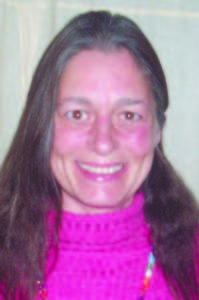It Dawned on Me: Putting to pen a resolution of joy
By Dawn De Busk
Staff Writer
Much like springtime, a new year unfolds before the human mind full of such promise.
It is the time and the season to make goals to better one’s own self, to line up objectives to improve one’s community, or perhaps to pledge to do something — or to refrain from doing certain things — in order to help the environment.
On the onset of Auld Lang Syne, many of us make a checklist of “want to do’s†or “what to do’sâ€. This ritual is often referred to as making New Year’s resolutions.
Frequently, those resolutions are health-related goals that have a concrete result. Sometimes, the set goal is achieving something in one’s career, or laying down the steps to start a new business venture, or expand on an existing business. My mom’s New Year’s resolutions always included fun things to do before another year came to a close. For some folks, the resolutions are a practical list of home improvement projects, or figuring out workable ways to budget better or bring in more income.
One of my goals for 2014 is to eat more chocolate, and to be more joyful and optimistic. More precisely, my goal is take joy in my humanness, and the humanity around me.
When correctly accomplished, this goal is less tangible than say: Losing pounds or inches, hauling away clutter from past years thus clearing a space in the basement, or crossing off the days on the calendar that one has gone without smoking.
So, the act of being joyful does not seem to have a real measurable result. Therefore, how will I know if I am on track?
Maybe, tracking joy is like measuring the wind. (This time of year, measuring snow would be a much more straight-forward task.)
We all have seen the way the wind affects things, even empty chocolate wrappers. We all know that we cannot see air, but we breathe it and see proof of its evidence through breezes, hurricanes, Nor’easters, and the white caps on lakes.
Therefore, joy, which is invisible, can also become obvious by watching our surroundings.
So, how will I know when I am feeling the joy of being human? How will I measure it?
One thing to take into consideration: Self-fulfilling prophecy will alter the results.
If I go about my day expecting to find this joy, in the end, my expectations might become reality. Likely, just to prove my point, my perceptions might change to acknowledge joy where there is none. Also, my actions might fall in line with my preconceived notions. Lastly, my actions might alter other people’s reactions.
According to theorists, self-fulfilling prophecy occurs throughout famous literature, and in real life as well.
One thing that I have observed about goals: It is much easier if it is a continuation of what you are already doing. It is much harder to go from an out-of-shape coach potato to a frequent-miles marathon runner. But, that one is doable in the realm of achieving goals.
Back to joy: This little piece of happiness strikes me quite frequently. I find it fascinating and exciting to be residing in the New England states where so many famous authors have lived: Henry David Thoreau, Henry Wadsworth Longfellow, E.B. White, Edna St. Vincent Millay, Linda Greenlaw, Rachel Carson and Stephen King.
I feel lucky to have visited some of the places that have inspired their writings.
I have a good feeling when I read quotes that align with what I believe.
I have found prose that dances with the reverence and the simple celebration of being human, such as that of Walt Whitman. Unfortunately and quite frequently, the human mind tends to make being human much more complicated than it is.
Sometimes, a poet can use his or her words to bring clarity to how simple it is to be human.
To be human means to enjoy that which we must do to live such as eating, drinking water, getting a good night’s sleep, seeking support from other people, caring for our friends, and craving family.
Shortly after Christmas, inside the Social Security building in Portland, I watched two women interact. About 15 or 20 years seemed to separate their ages, with the elder woman in her 80s or 90s. The younger one said that the lobby chairs were too tall, and her feet did not reach the floor. The older lady asked if she still had that pink folding stool in her car. “No,†was the response.
“If I put my feet on the floor, then I have to push forward in the seat, which hurts my back,†she said.
“And if I sit upright in the seat and my feet don’t touch the floor, it still hurts my back,†she said.
The other woman stretched out her much longer legs, and put her waterproof boots toward her friend. A big smile warmed her face.
“You can put your feet on mine — if you want,†the eldest said.
They both laughed.
For 2014, I would like to share this quote from William Henry Channing.
“To live content with small means;
to seek elegance rather than luxury,
and refinement rather than fashion;
to be worthy, not respectable; and
wealthy, not rich, to study hard, think
quietly; talk gently, act frankly, to
listen to stars and buds, to babies,
and sages with open heart, await occasions,
hurry never…this is my symphony.â€


